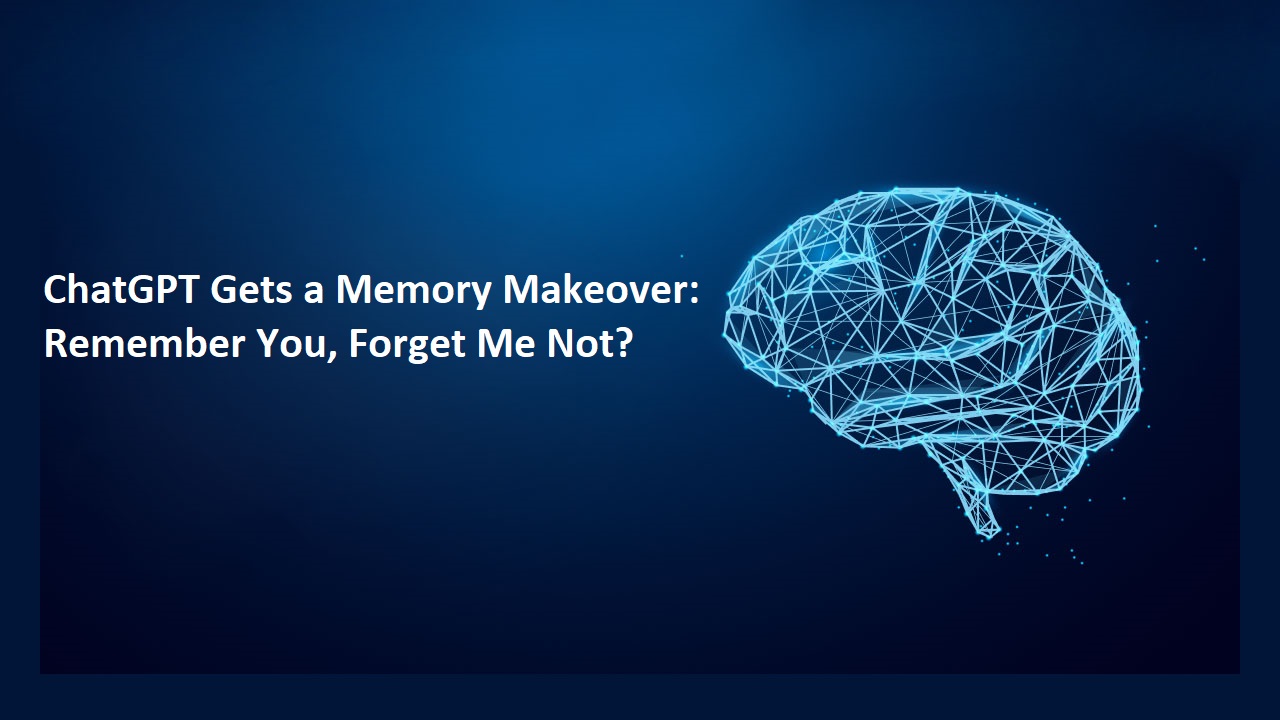ChatGpt OpenAI
Remember the frustration of telling your AI assistant the same things over and over? Like your email format preference or which weekend activities you’ve already explored? OpenAI’s got your back! They’re testing a memory upgrade for ChatGPT, allowing it to remember who you are and what you like.
Think of it is just like getting to know a new friend. You can directly tell GPT things to remember, like your favorite programming language or allergy concerns. But it is also a quick learner, picking up clues about you through your questions and interactions.
This “memory” is like a personalized notebook for each GPT you use. Imagine Books GPT remembering the books you’ve read and suggesting new ones based on your taste. Tutor Me could tailor your learning based on what you already know. Kayak could jump straight to your preferred airlines and hotels. The possibilities are limitless.
But with great power comes great responsibility… or at least potential concerns. Some folks are wary of privacy and the thought of AI knowing too much about them. OpenAI assures us that you’re in control. You can see what ChatGPT knows, ask it to forget specific things, or even wipe its memory clean. They’ve even created a “Temporary Chat” mode for incognito conversations where nothing is remembered. And if you’re completely against it, you can disable memory entirely.
Here’s how it works:
- You can tell ChatGPT to remember specific things, like your favorite language or allergies.
- Or, ChatGPT can learn about you over time by analyzing your questions and answers.
- This “memory” will be unique to each ChatGPT you use, like remembering which books you’ve read on Books GPT.
Sounds cool, right? But there are also concerns:
- Some people worry about privacy and AI “knowing” too much.
- OpenAI says you’ll have control over what ChatGPT remembers and can even wipe its memory.
- You can also use “Temporary Chat” for private conversations or turn memory off completely.
ChatGpt:
Are you ready for smarter, more personal chatbots? The future of AI interactions is looking personal, powerful, and perhaps a bit…memorable.
Right now, this feature is only available to a limited group of testers. But if it works, it might completely change the way humans communicate with AI. Imagine smarter, more personalized chatbots that understand your needs and preferences without constant reminders.
However, it’s crucial to address the privacy concerns directly. OpenAI needs to be transparent about how data is collected, stored, and used. Users should have clear and easy ways to manage their data and opt out of any memory features they’re uncomfortable with.
Ultimately, the future of AI interactions hinges on trust and transparency. If ChatGPT’s memory upgrade can strike a balance between personalization and privacy, it could usher in a new era of human-AI collaboration. Are you ready for AI that remembers you, for better or worse?
Frequently Asked Question:
ChatGpt memory limit
ChatGPT’s memory is currently in flux as they are testing a new feature that allows it to remember information about you and your conversations. However, it’s important to clarify two things:
1. ChatGPT doesn’t have true long-term memory.
Currently, both ChatGPT and large language models like me don’t possess memories in the way humans do. We can’t store long-term information about specific users or past conversations. Instead, we analyze the current input and context you provide to formulate responses.
2. The new “memory” feature is in testing and has limitations.
This new feature allows ChatGPT to “remember” specific details you tell it or infer from your interactions.
Who Owns ChatGpt
ChatGPT is owned and operated by OpenAI, a research and development company specializing in artificial intelligence. OpenAI itself was founded in 2015 by a group of prominent figures including Elon Musk, Sam Altman, and Ilya Sutskever. They started as a non-profit with the goal of ensuring beneficial development and use of AI, but transitioned to a for-profit model in 2019.
To Explore more Visit: USA Express24

